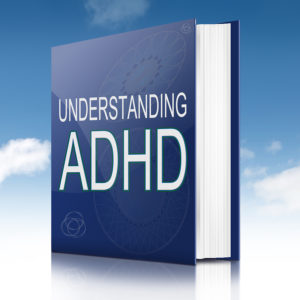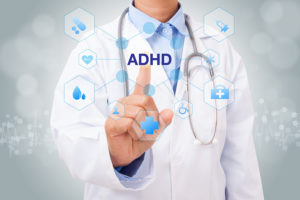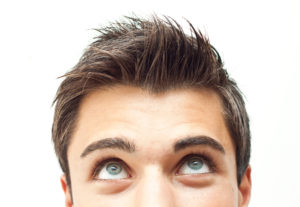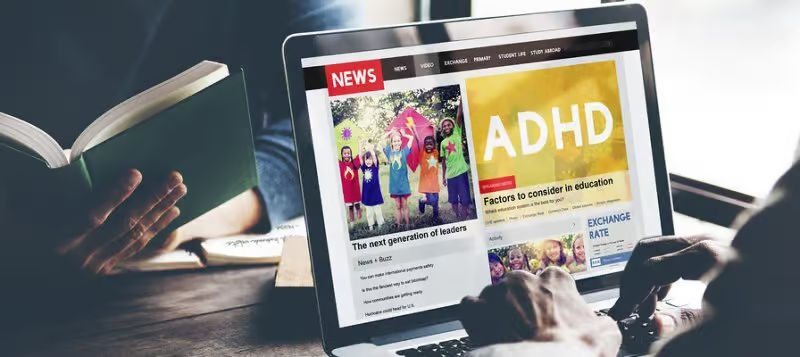Table of Contents
Key Takeaways
- B-Vitamins and multivitamins are crucial for brain health and neurotransmitter synthesis.
- Acetylcholine’s role in ADHD can be supported with nootropics like ALCAR and CDP-Choline.
- Nootropics like Ashwagandha and Bacopa Monnieri help repair damaged neuroreceptors in ADHD.
- Noopept enhances cognition, memory, and provides neuroprotection.
- Combining specific nootropics with essential vitamins can optimize brain function for managing ADHD symptoms.
Depending on the severity of your ADHD symptoms, you may be able to use nootropics as an alternative to prescription stimulants like Adderall, Ritalin, Vyvanse and their variations.
I experimented for a year by using nootropics in place of the 20 mg of Ritalin I had been using 3-times a day for several years. And for the most part, I was successful in taming my Adult ADD symptoms.
Adult ADD Nootropic Stack
The ADD/ADHD stack I use includes:
- Mind Lab Pro
- Performance Lab® Energy – twice per day
- CDP-Choline – twice per day
- ALCAR – 750 mg 1-time per day
- L-Tyrosine – 500 mg 3-times per day
- Sulbutiamine – 400 mg twice per day
- Aniracetam – 750 mg twice per day
- Vinpocetine – 10 mg 3-times per day
- Performance Lab® Omega-3 – 3 GelCaps per day
- 1 tablespoon unrefined Coconut Oil or MCT Oil– 3-times per day
- Performance Lab® NutriGenesis Multi – 4 caps per day
During my one-year stimulant holiday, the ingredients in Mind Lab Pro along with L-Tyrosine, CDP-Choline, and ALCAR (included in Performance Lab Energy) kept my dopamine, norepinephrine, and acetylcholine levels high enough to maintain focus, motivation and improve my memory. Vinpocetine kept my brain blood flow at optimal levels. And Aniracetam and Sulbutiamine improved my mood.
But after a year I decided to go back to using 20 mg of Ritalin twice per day. Because my workload had me writing 10 hours per day. And maintaining working relationships with 2 or 3 clients at once.
By adding Ritalin back to my stack I was able to reduce the time it would take to complete a project from 3 days to 1 ½ days. Proof to me that my overall brain health couldn’t make it with nootropics alone.
The beauty of continuing to use L-Tyrosine, CDP-Choline, and ALCAR even after I started using Ritalin again was that I avoided the stimulant “crash” that is so common late afternoon when using stimulants. And I was able to reduce the original 20 mg Ritalin 3-times per day down to only twice per day.
And I have not experienced building up tolerance to Ritalin that is so common when using stimulants to treat ADD or ADHD.
Your situation may be different, or ADHD symptoms not as severe. Only you can decide if nootropics can replace ADHD meds. The stack I describe on this page is designed to be used with or without stimulant meds.
Whether you use this stack with meds or without, you’ll need to discover for yourself what dosages of each nootropic are ideal for you. Because the amounts that work for me may not work as well for you. You may need less NALT and/or ALCAR.
Experimenting is the key to success with nootropics. And knowing as much as you can about what’s going on in your brain that needs to be fixed. But after many years of recommending this ADHD nootropic stack to people just like us around the world, we know this works.
The pre-made nootropic stacks mentioned in this post include:
Prescription “Smart Drugs” vs. Nootropics for ADHD
This post is in response to many emails and questions I’ve been getting about how to treat Attention Deficit/Hyperactivity Disorder (ADHD) or Attention Deficit Disorder (ADD) with nootropics.
So if you are dealing with ADHD, hopefully this post will help. Especially if you are using stimulants like Ritalin, Adderall, Vyvanse, Focalin, or any of the other stimulant prescribed for ADD/ADHD. Or you are trying to deal with ADHD naturally by avoiding prescription stimulants.
This information can also help if you are a student or executive who uses prescription “smart drugs” like Adderall or Modafinil to boost productivity.
Here we’ll dig into the causes of ADHD or ADD in your brain. Symptoms associated with ADHD. And what you can do using nootropics, or nootropics stacked with stimulants to correct ADHD symptoms.
I’ll also include ways to potentiate the effectiveness of prescription stimulants with nootropics so they work better.
If you’ve never ‘officially’ been diagnosed with ADHD, but some of this resonates with you, you could be ADHD or ADD. And this may point you to some answers.
I’ve been ADD all my life. (ADD is ADHD without the hyperactivity). But it wasn’t until about 16 years ago, that a very wise psychiatrist identified what was going on. And why I had been struggling with focus and other problems with behavior. That no amount of self-help books on focus and management could ever correct.
Ritalin turned the lights on for me. And completely changed my life for the better. This was the seed that sprouted my interest in neuroscience and nootropics. And ultimately launching Nootropics Expert®
What is ADHD & ADD?
Attention Deficit/Hyperactivity Disorder (ADHD) or Attention Deficit Disorder (ADD) are associated with attention and executive function in your brain.
Your prefrontal cortex directs behavior, thought and feeling which are all associated with working memory. This fundamental cognitive function is what most “healthy” people take for granted, are what make up executive function.
This executive function and working memory give you the ability to:
- Regulate your attention
- Inhibit inappropriate behavior and thought
- Monitor your actions
- Plan and organize your future
If you can’t focus on the task at hand, blurt things out at inappropriate times, have little control over your emotions or actions, and can’t seem to stick to that careful set of goals you wrote down, you may be ADHD.
The Role of Norepinephrine and Dopamine in ADHD
Norepinephrine and dopamine are the primary neurotransmitters involved in ADHD because they play an essential role in attention and thinking.[i]
The “inattentive” type of ADHD is related to issues with the norepinephrine, and the “hyperactive and impulsive” type of ADHD is linked to dopamine dysfunction.
These two neurotransmitters work in concert to maintain alertness, increase focus, sustain thought, effort, and motivation. The only difference between the two is the presence of a hydroxyl group. And dopamine is the precursor to norepinephrine synthesis in your brain.[ii]
Much of what we read about ADHD focuses on dopamine’s function in your brain. But norepinephrine (NE) plays a critical role in activating your reaction to events. And how you respond to the event.[iii] NE is essential for collecting information coming in through your senses. And then modulating your brain’s response.
Any disruption in this NE system can result in ADHD, Post Traumatic Stress Disorder (PTSD), sleep disorders and more.[iv]
For example, NE working with postsynaptic α2-adrenoceptors (α2-AR) in your brain play an essential role in helping you focus and eliminate distractions when you’re paying attention to something.[v]
This is just one example of what goes wrong with ADHD brain function. My point in bringing this all up is not to overwhelm you with neuroscience.
But to make clear that simply suggesting too much or too little of a single neurotransmitter like dopamine cannot explain the complexity of ADHD.
So using a nootropic like L-Tyrosine to amp up dopamine in your brain is often not enough to take care of ADHD symptoms. Or using Adderall with someone who has a problem with alpha2-receptor binding with norepinephrine may not get much benefit.
This is the reason that experimenting with various stimulants and/or nootropics is often the only way to find a long-term solution to keeping ADHD under control. And why some respond better to a drug like Ritalin and not as well to Adderall. Or vice versa.[vi]
And recent research shows serotonin and acetylcholine are involved too. Mostly the “hyperactivity” part of ADHD which includes movement, inattention, and impulsivity.[vii]
Smart Drugs Used to Treat ADHD Symptoms
If you are truly and clinically ADHD or ADD, it is unlikely that optimizing your diet, getting plenty of sleep, using nootropics, and exercising regularly will get the symptoms of ADHD under control.
The most severe forms of ADHD often benefit from using prescription medication. Otherwise known as “smart drugs” in some circles, these meds are typically amphetamines or methylphenidate.
The amphetamine-class of ADHD prescription drugs includes Adderall (75% dextroamphetamine salts and 25% levoamphetamine salts), Dextroamphetamine, and Vyvanse (Lisdexamfetamine).
The methylphenidate-class of ADHD medications includes methylphenidate (Ritalin) and its variants like Concerta, and Focalin.
Adderall and Ritalin both work with dopamine and norepinephrine in your brain. But through different mechanisms of action.
Ritalin is a pure uptake inhibitor of dopamine and norepinephrine without any other presynaptic activity.[viii] Adderall on the other hand, has additional presynaptic activity, releasing dopamine and norepinephrine from presynaptic neurons.
The idea for the last 60 years or so, has been if we could boost dopamine and norepinephrine in the brain, ADHD symptoms would go away. As long as we’re taking the medication.
Why Prescription Attention Deficit Hyperactivity Disorder Meds Often Don’t Work
 In an ideal world, taking one pill 2 or 3 times a day to treat ADHD would put your life back on track. And help you function like a ‘normal’ person.
In an ideal world, taking one pill 2 or 3 times a day to treat ADHD would put your life back on track. And help you function like a ‘normal’ person.
But real-world results often don’t work out as well as theory. For several reasons. For example, what if there’s not enough dopamine or norepinephrine in your brain in the first place? Then stimulants will not work as well as planned because they haven’t the neurotransmitters in place to work with.
You could also have problems with not enough or damaged neuroreceptors. Natural aging processes can slow blood flow or inhibit the production of neurotransmitters. A lack of acetylcholine could prevent your neurotransmitters from doing what they were designed to do.
This is where nootropics can help save the day in treating the symptoms of ADHD.
Optimizing Dopamine & Norepinephrine
 One of main culprits contributing to ADHD symptoms is a lack of dopamine (DA) and norepinephrine (NE) in your brain. Or your brain is not using the available DA and NE effectively.
One of main culprits contributing to ADHD symptoms is a lack of dopamine (DA) and norepinephrine (NE) in your brain. Or your brain is not using the available DA and NE effectively.
Stimulants like Adderall and Ritalin work to boost levels and use of these two critical neurotransmitters.
Production of dopamine and norepinephrine in your body and brain follows this metabolic pathway:
Phenylalanine → Tyrosine → L-DOPA → Dopamine → Norepinephrine
Dopamine is converted to norepinephrine by the enzyme dopamine β-monooxygenase, with O2 and ascorbic acid (Vitamin C) as cofactors.
Norepinephrine can be further converted into epinephrine by the enzyme phenylethanolamine N-methyltransferase with SAM-e as cofactor.
Nootropics to boost dopamine include:
-
-
- L-Tyrosine – L-Tyrosine is the precursor to producing dopamine in your brain. L-Tyrosine enhances working memory, executive function, creative flow states, reduces stress, improves mood and is anti-anxiety.
Suggested dosage of L-Tyrosine for ADHD is 350- 500 mg twice per day. I successfully stack 500 mg of NALT or L-Tyrosine 3-times per day. Once each time I dose with Ritalin, and a last dose mid-afternoon to prevent a stimulant crash later in the day.
- Mucuna Pruriens (L-Dopa) – Mucuna works as an antioxidant and heavy metal chelator, improves memory & cognition, reduces depression and boosts libido. L-Dopa is also the direct precursor to dopamine. Suggested dosage of Mucuna Pruriens is 250 – 500 mg per day.
But if you’re just starting out with nootropics, I highly recommend using L-Tyrosine or NALT instead of Mucuna Pruriens. Because Mucuna can be more difficult to dose since it directly stimulates the production of dopamine. L-Tyrosine and NALT are more ‘forgiving’ when it comes to dosage.
- Phosphatidylserine (PS) – PS can help improve alertness, attention, cognition, memory, recall and mood, and lower anxiety. All issues associated with ADHD. Phosphatidylserine is a phospholipid component of the membrane encasing every one of your brain cells. PS helps maintain the fluidity and permeability of brain cells. Improving the flow of dopamine and acetylcholine. Suggested dosage of PS is 1—mg 3-times per day.
- Pine Bark Extract – Pine Bark extract helps prevent decreases in dopamine and norepinephrine. And the glutathione (GSH) and GSH-disulphide reductase (GSSG-R) ratio. Neurotransmitter problems which contribute to hyperactivity in ADHD. Pine Bark extract also helps boost blood flow in the brain by increasing nitric oxide which helps dilate blood vessels. And it helps reduce oxidative stress, membrane damage, DNA damage, inflammation, and glycation.
I’ve found one of the most potent forms of Pine Bark extract comes in both Mind Lab Pro® and Performance Lab® Mind.
- L-Tyrosine – L-Tyrosine is the precursor to producing dopamine in your brain. L-Tyrosine enhances working memory, executive function, creative flow states, reduces stress, improves mood and is anti-anxiety.
- N-Acetyl L-Cysteine (NAC) – NAC is an amino acid that regulates the amount of glutamate and dopamine in your brain. NAC can be used to treat the symptoms of ADHD. And even helps eliminate some of the negative side effects associated with prescription ADHD stimulants. Suggested dosage of NAC is up to 600 mg 3-times per day.
A word of caution here in boosting the catecholamines dopamine and norepinephrine. Too much of either is not a good thing. In fact, excess levels of either will throw your neurotransmitter levels out of balance. And can cause anxiety, insomnia and panic attacks.
Taming Hyperactivity with Nootropic Supplements
The “H” in ADHD stands for hyperactivity. Boosting levels of dopamine and norepinephrine can help balance out hyperactivity. And help calm and focus your mind. But often simply boosting or balancing these neurotransmitters is not enough.
Recent studies show that serotonin and dopamine interaction also play a role in ADHD.[ix] Serotonin is involved in the uptake, synthesis and breakdown of dopamine in your brain. Problems with serotonin seem to contribute to behavior and impulse control.
Much more research needs to be done in this area of ADHD. But we can help control and balance serotonin with nootropics.
- 5-HTP – This amino acid is synthesized from the amino acid tryptophan. And 5-HTP is the immediate precursor to serotonin in your brain.5-HTP can help relieve anxiety and depression, fibromyalgia, insomnia, migraines and likely the hyperactivity, depression and anxiety associated with ADHD. Suggested dosage of 5-HTP is 50 mg up to 3-times per day. Please see my dosage notes and warnings before you try supplementing with 5-HTP.
-
-
- Ginseng – Ginseng helps calm anxiety, and boost attention, concentration and memory. Ginseng provides neuro-protective effects on the dopaminergic-pathway which can help with ADHD. And ginseng is a serotonin and norepinephrine reuptake inhibitor (SNRI).Suggested dosage of Ginseng is 100 – 400 mg per day.
-
- L-Theanine – L-Theanine commonly found in green tea helps boost alpha and theta brain waves, is anti-anxiety, boosts cognition and memory and reduces insomnia. L-Theanine also helps boost GABA, serotonin and dopamine levels in your brain. Suggested dosage of L-Theanine is 150 mg 2 – 3-times per day.
-
- Rhodiola Rosea – Rhodiola Rosea helps improve alertness, energy, memory and mood, is anti-anxiety and antidepressant, reduces fatigue and boosts memory and concentration. Rhodiola influences serotonin and norepinephrine levels in your brain. Suggested dosage of Rhodiola Rosea extract is 150 – 200 mg per day.
-
- Saffron – Saffron acts as a dopamine and norepinephrine reuptake inhibitor. Similar to how Ritalin works. A randomized double-blind study was conducted with 54 children 6-17 years old who were given 20 – 30 mg methylphenidate or 20 – 30 mg Saffron per day for 6 weeks. At the end of the study researchers concluded, “Short-term therapy with a saffron capsule showed the same efficacy compared with methylphenidate.” Suggested dosage of Saffron is 30 mg per day.
-
- Vitamin B6 (Pyridoxine) – Vitamin B6 helps your brain make serotonin, norepinephrine and melatonin. Suggested dosage of B6 is up to 100 mg per day.
-
- Vitamin B9 (Folate) – Folate (NOT folic acid) as a nootropic helps your brain make dopamine, epinephrine, norepinephrine and serotonin. Suggested dosage of Folate is 400 mcg per day.
-
- Vitamin B12 (methylcobalamin) – is a cofactor in the synthesis of neurotransmitters acetylcholine, dopamine, GABA, norepinephrine, and serotonin. Suggest dosage of B12 is 100 mcg per day.
B-Vitamins are Critical in Controlling ADHD
Take note that several of the B-Vitamin group are involved in the production of the neurotransmitters involved in ADHD. I recommend adding a good B-Vitamin Complex that include methylfolate (not folic acid) and methylcobalamin (not cyanocobalamin) to your stack. Both in a pure nootropic stack as well as when using any of the ADHD prescription stimulants.
But it’s not only the B-Vitamins that are required for a healthy, fully functioning brain. We also need each of the 13 vitamins and 13 minerals needed for everything from blood flow, neurotransmitter synthesis and release, brain signaling, and neuroprotection.
I’ve found the easiest way to make sure my ADD brain gets all the vitamins and minerals it needs every day is to also use a multivitamin/mineral supplement.
The best I’ve found so far is the multivitamin called Performance Lab® NutriGenesis Multi. It’s better than the “raw-food” multi I was using for years. And makes a difference I can actually feel.
But please note that this multi is in addition to a B-Vitamin Complex because the ADHD brain needs more of these critical nutrients than what is normally in any good multivitamin.
The Role of Acetylcholine in ADHD
Researchers at Vanderbilt University Medical Center discovered that there are three types of ADHD.
We’ve already covered the “inattentive” type that is related to issues with the norepinephrine transporter gene. And the link to the dopamine transporter gene in the “hyperactive and impulsive” type.
But the research team now report that a variation in the choline transporter gene is associated with a “combined” type of ADHD. Symptoms include both inattention and hyperactivity/impulsivity.
Choline is required to synthesize acetylcholine (ACh) which is needed for memory, motor-control, focus, learning, concentration, and cognition.
If you have the “combined” type of ADHD it’s likely due to a mutation in this choline transporter gene variation.
Nootropics to boost acetylcholine include:
- ALCAR (Acetyl-L-Carnitine) – ALCAR donates am acetyl group in the presence of Coenzyme-A for the synthesis of acetylcholine. And it’s also a shuttle transport for fatty acids through brain cell membranes. It shuttles fatty acids into mitochondria for ATP synthesis, and shuttles toxic byproducts out.
Research from the Linus Pauling Institute shows ALCAR will restore mitochondrial function, replenish age-related changes to mitochondrial structure, and helps replenish acetylcholine levels to your brain and body.
And other studies show that ALCAR stimulates nerve growth factor. Helping support survival and growth of neurons. Which is particularly important for the ADHD brain and especially when using prescription stimulants that may be tough on neurons.
- Alpha Lipoic Acid (R-LA) – Alpha Lipoic Acid increases acetylcholine production by activation of choline acetyltransferase and increases glucose uptake. This process supplies more Acetyl-CoA for the production of acetylcholine.
Alpha Lipoic Acid enhances insulin-stimulated glucose transport and metabolism for better brain cell performance. And R-Lipoic Acid provides strong antioxidant support because it helps regenerate and recycle existing antioxidants in your brain including Vitamins C & E, glutathione, and CoQ10.
I’ve since switched the ALCAR supplement in my ADD stack to Performance Lab® Energy because this pre-formulated energy stack contains my preferred dose of ALCAR. But note that I also take another 500 mg of ALCAR with L-Tyrosine late afternoon to prevent a stimulant crash.
Performance Lab® Energy also contains Alpha Lipoic Acid and ALCAR which helps my ADD brain produce acetylcholine.
- CDP-Choline (Citicoline) – Citicoline helps synthesize phosphatidylcholine (PC), a major phospholipid found in brain cell membranes. And provides choline for the synthesis of acetylcholine while providing antioxidant activity.
The CDP-Choline (Citicoline) in my ADD stack is supplied by Mind Lab Pro® which is the base of my nootropic stack.
But a suitable alternative to MLP is Performance Lab® Mind which contains the branded form of citicoline called Cognizin®.
Performance Lab® Mind and Mind Lab Pro® also contain L-Tyrosine, Phosphatidylserine (PS), and Maritime Pine Bark extract.
Repairing Neuroreceptors Needed to Control ADHD
One of the issues with neurotransmitters and ADHD are damaged or non-existent receptors. Dopamine, norepinephrine and serotonin have less receptors to bind to for cognition and mood control.

Once again, nootropics come to the rescue in helping control ADHD. You can add one of these nootropics to your stack to help boost neuron and receptor health.
- Ashwagandha – This adaptogen, Ashwagandha helps reduce anxiety and depression. And helps reconstruct axons, dendrites and synapses involved in neurotransmitter signaling in your brain. Suggested dosage of Ashwagandha extract is 250 – 500 mg per day.
-
- Bacopa Monnieri – Bacopa helps boost memory and cognition, improves mood, and reduces stress. This adaptogen affects brain levels of acetylcholine needed for neurotransmitter signaling. And the two active components of Bacopa Monnieri called bacosides A and B not only improves signaling of electrical impulses between neurons in your brain. Bacosides also help rebuild damaged neurons. Suggested dosage of Bacopa is up to 450 mg per day.
-
- Lion’s Mane – Lion’s Mane Mushroom is known for stimulating Nerve Growth Factor, improving cognition and memory, and relieving depression. Lion’s Mane stimulates the repair and creation of neurons in your brain. Neurons needed for dopamine and norepinephrine to control ADHD. Suggested dosage of Lion’s Mane Mushroom starts at 500 mg per day. Note: that there’s an effective 500 mg dose of Lion’s Mane full-spectrum fruiting body in each dose of Mind Lab Pro®
-
- Noopept – Noopept helps boost cognition, memory, learning, perception, logical thinking and mood. Noopept increases Nerve Growth Factor, and Brain-Derived Neurotrophic Factor (BDNF) critical for neuroplasticity and Long-Term Potentiation critical for long-term memory. Noopept also prevents the release of excess glutamate in your brain. Providing potent neuroprotection for neurons and reducing damage. Suggested dosage of Noopept is 10 – 30 mg per day.
Please note that I haven’t linked through to supporting clinical studies for each of the nootropics I listed above. But you can click through to my full review of each nootropic for extensive research supporting each supplement.
Nootropics for Kids
ADHD and ADD is most often diagnosed in children. The latest statistics (2011) from the CDC in the USA shows about 11% of children 4 – 17 years of age (6.4 million) have been diagnosed ADHD.[x] And that’s just for the USA.

Although ADHD is usually first diagnosed in children, it often lasts into adulthood. I sometime wonder how my life would have been different if I had been declared ADD when I was a kid.
But it wasn’t until the late 1960’s that the American Psychiatric Association formally recognized ADHD as a mental health disorder. I wasn’t declared Adult ADD until much later.
The thing is many parents are wary about putting their children on powerful, prescription ADHD meds. Kids’ brains continue to develop until your early 20’s. So is it a problem messing with brain chemistry at such a young age? Only time will tell and if the benefits outweigh any potential risk.
Hence the reason why parents are looking for ‘natural’ alternatives like nootropics to treat ADHD in children. But are nootropic supplements any safer than prescription stimulants?
Common sense tells me that using L-Tyrosine could be safer than Ritalin for boosting dopamine. And Rhodiola Rosea could be safer than stimulants or antidepressants for taming hyperactivity.
But many children with ADHD, natural supplements may not be enough. I’m not a doctor, and don’t even play one on TV. I’m an ordinary biohacker who has learned as much as I can to help myself. And fix my own cognitive performance issues. Including Adult ADD.
So I highly recommend you find and work with an open-minded psychiatrist with your child. You may be pleasantly surprised to find you may be able to reduce or eliminate prescription ADHD meds altogether to enhance cognitive functions. And maybe not. But the long-term health of your child could be worth the time investment to find out.
In Summary
I’ve been wanting to write this post since I started Nootropics Expert®. If you are ADHD or ADD, I hope you found this useful. And I’d appreciate your feedback, and share your experience with treating ADHD with nootropics in the comments section of this post below.
Please share this post with anyone you think would benefit. Including discussions about nootropics for ADHD on reddit or Longecity.
One final note. Neurotransmitter balance is key to taming ADHD. I strongly caution you to take it slow if you’re just starting out with nootropics. Carefully read each of the extended articles in the List of Nootropics you are considering trying.
You need to be careful about side effects, prescription drug interactions, dosages and how your body reacts to each supplement to ensure healthy brain function.
But I’m confident that with careful planning and a long-term commitment, your cognitive enhancement will be just as successful as I have been in living and thriving with my Adult ADD.








Join The Discussion - 863 comments
Aaron Keen
January 13, 2020
Hey David, first off thanks for redirecting me here from the other post. I’m clinically dosed with ADHD currently take 10 mgs Adderall 2-3 times a day. I still have trouble doing boring tasks. I went up to 15 and 20mgs but I started getting really depressed and lethargic. I am a college student and I cannot afford all the different nootropics in the stack. Are there an essential few that would work well enough to get my back focusing again that I can use alongside Adderall?
David Tomen
January 15, 2020
Aaron, the basics of this stack are ALCAR, NALT or L-Tyrosine, DHA, unrefined coconut oil or MCT Oil, and a high quality multivitamin or at the very least a high quality B-Complex like the one from Life Extension. Recommended dosages and timing during the day are in this post.
nico
January 10, 2020
Hello David,
I have everything in the stack covered. With some minor alterations. They are all supplements with as trustworthy a producer as you can find. Overall supplement quality is pretty low so better spend more on less than all the cheapest products on the market.
Sulbutiamine and Aniracetam, however, are prohibited. That’s to say – you can buy them on the internet (not the dark web:) but regular webshops with extremely high visibility. But it just doesn’t feel all that right. And it’s expensive. Shipping is almost the same if I was to order it in the U.S. But that’s a problem. My shipment was seized by customs. I actually tried to phone in advance but I never got an answer so I went ahead.
I must add, I mailed them after receiving their letter and they were very understanding, friendly and explained everything. There isn’t any kind of FDA checking the nootropics from the company’s here, that’s for sure. I can get sulbutiamine from Amazon.com, that wouldn’t be a problem. But aniracetam is another story. I could get it, no problem actually – but it goes through a guy in a different country who distributes high-quality nootropics from reputable U.S. sources. I would have to ask him two weeks in advance, etc. His prices a very reasonable.
And now the questions:)
But how important is the sulbut/aniracetam combo for your stack?
Is sulbutiamine alone worth it? – that guy with the side-job feels like it’s very habit-forming(but he’s not right all the time, that’s for sure;).
Is there a need to take days or longer periods off?
thank you for your with the site!
It’s great.
David Tomen
January 11, 2020
Nico, this ADHD stack will work just fine without adding Aniracetam or Sulbutiamine. Those nootropics are optional but I included them because they work so well and I’ve personally used them daily for over 10 years.
If Sulbutiamine is your only easy choice then yes, it’s worth adding to our stack. See my review on Sulbutiamine for more on why I say this. Some find that they need to cycle it to prevent tolerance. I’ve never had that problem.
And anything can be habit forming I suppose. Sulbutiamine is a version of Vitamin B1 (thiamine). Not sure how anyone gets addicted to a vitamin. But nothing surprises me anymore.
Judie
January 7, 2020
What are your thoughts for using Dexedrine instead of ritalin with Nalt and Alcar?
David Tomen
January 8, 2020
Judie, this stack was designed to work with methylphenidate or amphetamines. They have slightly different mechanisms of action in the brain but both require dopamine and acetylcholine. Which is what these nootropics support.
Mitch
November 26, 2019
Thanks for this, David. 37 year old male just diagnosed with ADD. Currently on Adderall with fine results, but looking for the long-term play.
I’m curious how you’d approach stacking from a step-by-step basis… which items on the list to start with in what order… to make sure I’m able to really understand what’s working for me and in what dose.
My impulse is to start with your stack and work from there. But my wife brought me back to earth in terms of treating this more like a biohacker’s experiment.
Also, any thoughts on the book “Finally Focused” and his functional medicine approach? In the book, the doc recommends CurcumaSorb Mind (which he formulated) basically as an amped-up OPC supplement, citing some interesting research behind it. I was going to head that direction first before I found this page…
Thanks for all you do!
David Tomen
November 27, 2019
Mitch, I’ve looked at other stuff and keep coming back to this. Because it’s worked for me for the last 12 years. And for thousands of others dealing with ADD/ADHD with or without stimulants.
The basics are L-Tyrosine (dopamine), ALCAR (acetylcholine and brain cell fuel), DHA (brain cell health), and a bio-identical B-Complex. That will get you started and support the use of Adderall. But following dosage recommendations and timing during the day.
Michael Muraviev
November 14, 2019
Hello, David, I have been an inattentive type since childhood. Thanks to you, I have made corrections to my treatment and this will probably help my father too. but I just started to form a set
At the moment, my stack:
l-thyrosine 1000mg 2-times per day
Alcar-1000mg 2-times per day
l-tryptophane 250~mg 2-times
zinc 80mg 1-time per day
according to the situation, I use theanine, gotu kola(for relaxation of blood vessels) dmae(I don’t understand how it works, but there is an effect)
mail will bring me NAC, inositol, PS with Ginkgo Biloba Extract, Ashwagandha
i want Sulbuthiaminum, vit B, C, D, Pycnogenol®, alpha-gpc(only help adhd or add too?)
I have no problems with hyperactivity(only anxiety, remission) maybe I’m drinking something superfluous?
sorry for my eng.
oh yes, from the current supplement the effect is good
David Tomen
November 15, 2019
Michael, the B-Complex vitamins are very important for ADD/ADHD for so many reasons. Along with the other vitamins you mention. Here’s a link to a post I wrote that explains why: https://nootropicsexpert.com/13-vitamins-essential-for-the-optimized-brain/. You need one the is bio-identical like the complex made by Life Extension: https://amzn.to/2Ko99k8
Pycnogenol primarily for better blood flow. But also helps with dopamine and norepinephrine which is a problem with ADD.
And Alpha GPC because it’s needed to make acetylcholine along with ALCAR and the B-Vitamins. Needed for brain cell signaling which is also a problem with ADD/ADHD.
Michael Muraviev
November 16, 2019
Thank you I bought this product with Vitamin B, Nalt and Alpha GPC
i want join aniracetam, but in my country, which invented nootropics, it is difficult to obtain it. may try piracetam
Michael Muraviev
November 16, 2019
there is still a very important topic.
My mother has been anxious for many years. Prescribed 600mg Pregabalin (Lyric)
what antioxidant to add, against oxidative processes. Maybe something else, I do not want interaction.
Doctors do not understand supplements
David Tomen
November 17, 2019
Michael, looks like it would be best to avoid anything that affect GABA while using that drug. Please see the sections “Oxidative stress” and “Inflammation” in this post for some ideas: https://nootropicsexpert.com/best-supplements-for-brain-fog/
Michael Muraviev
December 23, 2019
NAC – 600mg twice per day(one of the best things I’ve tried)
NALT- 700 mg twice per day ( i love it)
b-comlex(lifeextension) – one capsule per day
tryptophan – 250mg 1-time per day
theanine, coffein optional
Sulbutiamine – 400 mg twice per day( it works)
phosphatidylserine + ginkgo over time causes depression, irritability. ashwagandha tired me and brain fog.
I figured out a little neurotransmitters. and it looks like my brain has an excess of acetylcholine. alpha gpc or alcar gives me depression, muscle tightness, racing thoughts. only dmay works fine.
anything related to dopamine I like. the thought arose: 5 days to drink tyrosine, 2 days uridine (for new synapses). or may combine uridine and tyrosine together, but there are no reports of such a combination.
David Tomen
December 24, 2019
Michael, it could be too much acetylcholine or you are deficient in magnesium. Likely both. But you should definitely be using L-Tyrosine at least twice per day (500 mg). And increase your dose of L-Tryptophan to 500 mg.
There are plenty of ways to boost Nerve Growth Factor and BDNF which will help keep synapses healthy. Take a look at this list for some ideas: https://nootropicsexpert.com/13-nootropics-to-boost-bdnf/. Another thing to consider is Lion’s Mane Mushroom.
Richard
November 8, 2019
Hello David,
so sorry to bother you again:) Honestly …
I had a MAJOR deadline last month. At first – after the DL – it felt like I could just start another project. In fact; I did. With a lot of enthusiasm. Nothing changed. But I ran out of the add stack. At lost some of it … I quit the Mindlab. Although I started again just now; I have one unit left. I kept the Alcar. And sulbutiamine. But I’m out of aniracetam. And I don’t have cash at the moment to restock on Mindlab (the C.D.P. works right away I think? Which is kind of the reason I’m taking it… Because the synergy only bears fruit after two weeks; according to their site) the unit is empty:) or Aniracetam. Almost out of Sulbutiamine.
I do have my meds; which is why I asked about the upregulation. Because it feels like they just stopped working. No matter how much … so I figured; downregulation. but three weeks ago things were fine. Just fine …
A MAJOR reason could be decompression. Because I worked on that project 24/7 for 9 months. But I took a small break and my hands were itching to start with something new. And then all of a sudden. BANG. This more or less correlated with me running out/quitting everything for a while. But I would have expected my meds to work on their own … I have this bizarre feeling that I’m missing the sulbutiamine, aniracetam, C.D.P., and Vinpocetine … I can’t tell you why. (I still do the B complex and NALT!!)
Although I do think the decompression has something to do with it as well. Diet and sleep are just fine. Excercise not. But it wasn’t during those nine months too… I’m going jogging tomorrow. No joke – I’m not looking forward to it – but I’m going.
Also; I wasn’t planning on combining Huperzine and Seroquel. I just wondered about whether taking Seroquel would upregulate if taken … (without any nootropics).
I wonder what your take on this situation is. It’s probably a little of collum a and a little of collum …
I also wondered what your thoughts were on the following piece out of an article on medium:
If my instincts are right it could save me a lot of money:)
Although I expect it’s not just the nootropics…
Most Kind Regards,
Richard
David Tomen
November 8, 2019
Richard, I read the section of the Medium post you pasted here then deleted it as it’s not appropriate for my site. I welcome anyone making comments but prefer they are kept concise. And the comment is their personal opinion.
I do agree that often it is best for the beginner to build their own stack based on their individual needs. Because it is the only way to learn what will work for your specific situation. And I also agree that “proprietary formulas” should be avoided. But once you know what works you can save hundreds per month by finding something similar in a pre-formulated nootropic stack.
In your case I suggest doing what works for you and what you can afford. If you “feel” that certain nootropics are missing then it’s very likely your body and brain telling you what it needs. So pay attention to what it’s saying.
I do not know what you mean by “decompression” as I’ve never come across that term in all my years of research and writing about nootropics. Please explain (short definition please).
richard
November 9, 2019
Hey Richard,
I’m sorry for the medium piece … Completely understand. I’m not a native speaker – I had no clue decompression wasn’t an English word.
A bike racer – like Lance – unlike soccer players have to live for their sport 24/7. Train, eat right, rest. Some bike riders finish a major objective – right away they think about their next goal (Froome … I’m guessing you’re so not into cycling:).
Others live like monks for 9 months. Accomplish amazing things – the whole country in awe – after he parties a bit too hard, crashes his Ferarri and tests positive for cocaine. That’s an extreme – real-life case. No doping accusations in his whole career. But a couple of these incidents. That’s an extreme example but that’s what I meant.
I think decompression has to do wit diving, no?:)
The typical example is; they win the tour – enjoy the victory too much. Lots of ceremonies – they start training too late. Get to fat (weight is crucial in three weeks cycling tours) and completely $*ù%-up their next season. Decompression!
I know what’s wrong. I’m relieved it’s not my dopamine receptors that have downregulated … But it’s a disaster. I just figured it out … and I don’t know what to do. First, have a good nights rest; figure out what to do tomorrow.
I’m sorry for the posts the last couple of weeks …
Keep it up!
richard.
David Tomen
November 9, 2019
Richard, you are correct in that I only recognize the use of the word “decompression” from my scuba diving days.
But the scenarios you describe can be minimized by consistent, daily use of nootropic supplements at the right dosages. It takes dedication and commitment to a planned supplement regimen. So even if you go hell-bent for leather, the crash will be softer and gentler.
richard
October 31, 2019
Huperzine A – is a minor nmda antagonist; not for upregulation.
I have also seen som debate whether or not one could take something like seroquel to upregulate. Supposedly theoretically this would make you feel awfull – don’t do it!! (is what I’ve read)
At one point in time they gave e a box of seroquel for Anxiety. It didn’t make me feel awful. Besides the first day I didn’t feel anything really. The reason I stopped it was because I didn’t want to take a medication constantly for something that isn’t a day to day problem. I’m not saying I will do this:) I’m just curious as to whether this would work or not and in what degree …
Thanks and sorry
David Tomen
October 31, 2019
Richard, Huperzine-A seems to be a NMDA receptor antagonist which keeps glutamate in check and from damaging brain cells.
Seroquel is a dopamine, serotonin, and adrenergic antagonist, a potent antihistamine and has some anticholinergic properties.
But Huperzine-A is primarily an acetylcholinesterase (AChE) inhibitor. Which is how I see it being contraindicated with Seroquel. Nothing good could come from combining the two.
richard
October 31, 2019
Dear David,
my adderall-like meds are no longer producing the wanted effect. Taking a higher dose is a dead-end I won’t be pursuing. I’m going to take a break which seems like the only way to deal with. I’ve read that returning to baseline takes 3 to 6 months. In my case, it’ll be a month. Afterward, I’m planning on using it 2/3 days a week. And if I’m writing I’ll try to work with non-stimulants. I have used the whole add-stack and it worked very well. But at the moment I can’t afford it anymore.
My question; Is there anything I can do to return to the dopamine baseline faster? Upregulating the receptors I guess? My diet is pretty good; I could exercise more and I’ll be going on vacation so that means plenty of sun (and exercise). So apart from that … (I’ll be sleeping 8 hours as well;)
This is a list of what I have found but I’m wondering whether they are worth my money …
Pregnenolone (Diet ok)
Resveratrol (Diet ok)
DHA (Daily)
Carvacrol (Diet ok – Oregano oil?)
Folate (Daily)
monounsturated fat (Diet ok)
Butyrate
Uridine (Interests me!!)
Curcumin (Almost Daily)
Ginko B – WORTH it? (seems like a long shot)
Alcar (Daily)
L tyrosine (Nalt) (I take this daily)
Mucuna (Take Tyrosine and DLPA adding mucuna might be over the top?)
Forskolin
Huperzine A
Inositol
Sulbutamine
citocoline (choline)
What’s your take on this? Is there anything I could supplement with that would make a difference? Diet ok, doesn’t mean I don’t want to supplement. But the conclusion often sounds like; for all we know, it might well be that maybe, who really knows … rats. If you could shed a little light on this that would be great!
Also; is an nmda antagonist going to help? Or it this only the case to keep tolerance at bay during the time you’re taking stims? I’ll continue with Magnesium but I also have what’s supposed to be the best of these NMDA antagonists; should I continue … or no point really?
And then a last one but I don’t know whether it’s worth it (This can be addictive; I know but that won’t be a problem) …
Tianetptine Sulphate …
Is there Anything you can advise; Like the top 3, 5 or 10 ? 🙂
I take tyrosine 3 times a day, some glutamine with it, B complex, vit C , and a number of specific minerals all aimed to boost dopamine levels if you have a deficiency … (In fact, I’m not taking these for catecholamine, but they overlap for the biggest part)
Sorry for the long question! It would make a great article I think. Unless there’s nothing to tell of course; how to … : Time:)
Thanks a million,
richard
David Tomen
October 31, 2019
Richard, Adderall should work fine if it is used with the stack described in this post. Because that is what I designed the stack for and have been using successfully for the last 12 years.
The very minimum that the ADHD/ADD brain needs (at the appropriated dosages and timing) is L-Tyrosine, ALCAR, Citicoline, DHA and a good B-Complex.
I’d stay away from Tianeptine Sulphate simply because I consider it a Smart Drug that is a controlled substance in many countries. And not necessary when we have natural nootropics available to do the job.
Best thing I know of to repair neurons and create new dendrites, axons and synapses is Ashwagandha.